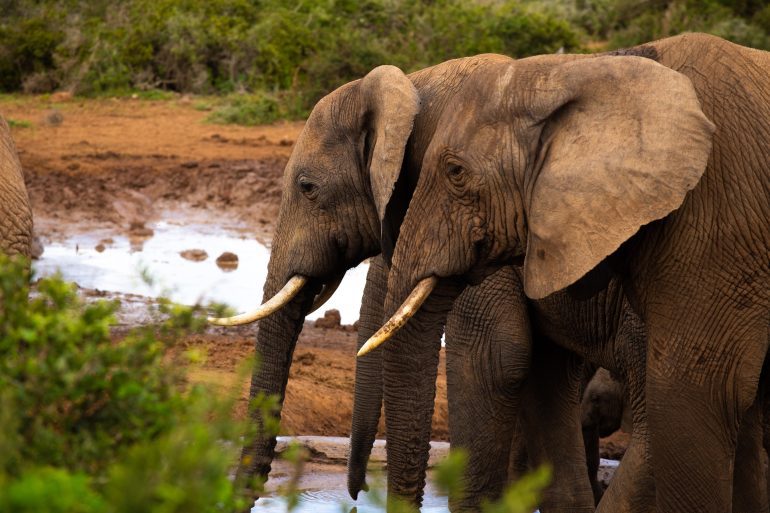- Recent AI research uncovers unique vocalizations akin to individual names among African elephants.
- Elephants distinguish each other through distinct vocal signatures, indicating intricate social dynamics.
- Study published in Nature Ecology & Evolution reveals elephants recognize individual identities through resonant appellations.
- Researchers from Colorado State University utilize advanced machine learning techniques to discern unique vocal signatures.
- Elephants exhibit heightened responses upon playback of recorded sounds, suggesting a profound connection to their individual names.
- Observations reveal nuanced communication system, with elephants exhibiting selective responsiveness to certain calls.
- Study challenges conventional wisdom regarding animal communication, highlighting exceptional cognitive capacities of African elephants.
- Lead author emphasizes vast potential for further exploration into elephant communication, suggesting complexity remains largely uncharted.
- Discovery opens avenues for innovative approaches in wildlife conservation, emphasizing importance of preserving intricate social structures of elephants.
Main AI News:
African elephants distinguish each other with unique appellations, a groundbreaking revelation shedding light on their intricate social dynamics. Published in Nature Ecology & Evolution, a recent study unveils the remarkable ability of these majestic creatures to recognize individual identities through distinct vocalizations. These resonant appellations, manifested in elaborate low-frequency rumbles, resonate across the expansive African savannah.
Conducted by researchers from Colorado State University’s Warner College of Natural Resources, the study utilized advanced machine learning techniques to discern these unique vocal signatures from recordings captured in Kenya’s Samburu National Reserve and Amboseli National Park. Upon playback of these recorded sounds, elephants exhibited heightened responses, indicating a profound connection to their individual names.
George Wittemeyer, a Professor and co-author of the study, emphasized the challenges encountered in capturing the nuances of elephant communication. “They speak infrasonically and sonically,” Wittemeyer explained, underscoring the complexity of their vocalizations. The researchers meticulously tracked the elephants, documenting instances where specific individuals called out, eliciting responses from targeted recipients within the herd.
Observations revealed a nuanced communication system, where elephants exhibit selective responsiveness to certain calls. Wittemeyer elucidated, “They have a means by which to communicate to who they want to talk to,” elucidating the sophisticated social dynamics prevalent among these intelligent beings.
This groundbreaking study challenges conventional wisdom regarding animal communication, highlighting the exceptional cognitive capacities of African elephants. Comparable to renowned “naming” animals such as dolphins and parrots, elephants demonstrate a remarkable ability to learn and utilize unique vocalizations throughout their lives.
Lead author Michael Pardo, a postdoctoral researcher at the university, emphasized the vast potential for further exploration into elephant communication. “There’s a lot of potential to learn more about elephant calls,” Pardo remarked, suggesting that the complexity of their communication system remains largely uncharted territory.
Wittemeyer echoed this sentiment, acknowledging the profound implications of deciphering the intricacies of elephant communication. “If we could get inside into what they’re saying,” Wittemeyer mused, “we could really get a new perception on how they think,” hinting at the transformative insights awaiting discovery within the enigmatic realm of elephant vocalizations.
Conclusion:
The discovery of unique vocal identities among African elephants signifies a significant breakthrough in understanding their social dynamics and cognitive capacities. This revelation opens avenues for innovative approaches in wildlife conservation and management, as it underscores the need for tailored communication strategies and emphasizes the importance of preserving the intricate social structures of these majestic creatures. Additionally, this newfound knowledge presents opportunities for eco-tourism ventures focused on ethically observing and studying elephant behavior, thereby contributing to both scientific advancement and economic growth within relevant markets.

